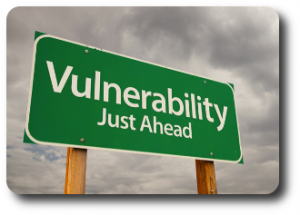 Chris Holmquist works with adoptive families, in which young people who have suffered early childhood adversity develop behaviours that are harmful to others and to themselves. He told me this story about William Penn who was a Quaker and the founder of Pennsylvania. Quakers have played an important role in the history of the United States – first by relinquishing the practice of slavery themselves, and then in resisting this cruel and at the same time ’legal’, inhumane treatment, e.g. by contributing to the ‘underground railroad’, a secret network by which people were able to escape slavery into exile in Canada. The story Chris shared struck me as going to the heart of what nonviolence is about – and the deeply felt uncertainty one can experience when embracing its principles and methods. Chris uses this story, and his interpretation of it, when introducing Non Violent Resistance or NVR to parents he works with:
Chris Holmquist works with adoptive families, in which young people who have suffered early childhood adversity develop behaviours that are harmful to others and to themselves. He told me this story about William Penn who was a Quaker and the founder of Pennsylvania. Quakers have played an important role in the history of the United States – first by relinquishing the practice of slavery themselves, and then in resisting this cruel and at the same time ’legal’, inhumane treatment, e.g. by contributing to the ‘underground railroad’, a secret network by which people were able to escape slavery into exile in Canada. The story Chris shared struck me as going to the heart of what nonviolence is about – and the deeply felt uncertainty one can experience when embracing its principles and methods. Chris uses this story, and his interpretation of it, when introducing Non Violent Resistance or NVR to parents he works with:
The story;
When William Penn was convinced of the principles of Friends, and became a frequent attendant at their meetings, he did not immediately relinquish his gay apparel; it is even said that he wore a sword, as was then customary among men of rank and fashion. Being one day in company with George Fox, he asked his advice concerning it, saying that he might, perhaps, appear singular among Friends, but his sword had once been the means of saving his life without injuring his antagonist, and moreover, that Christ had said, ‘He that hath no sword, let him sell his garment and buy one.’ George Fox answered, ‘I advise thee to wear it as long as thou canst.’ Not long after this they met again, when William had no sword, and George said to him, ‘William, where is thy sword?’ ‘Oh!’ said he, ‘I have taken thy advice; I wore it as long as I could.’
Chris’ interpretation:
My interpretation of this story in relation to NVR was that when we are trying to introduce parents to NVR, there will be times when we have to acknowledge that we are going to need to let go of deeply ingrained habits that have helped us to feel safe and confident in the past. Parents in turn will have the same sense of going outside their comfort zone. Likewise, they are asking children and young people who have experienced trauma to let go of the survival strategies that have developed in the past but are no longer helpful and are now seen as problematic.
Neither we nor parents may be able to do so immediately, any more than children and young people can just ‘switch off’ their  challenging behaviours. We all need to bear the discomfort of the continued impulse to resort to those formerly comfortable habits, until we are able to lay them down in favour of something new. This will initially leave us feeling ‘naked’, exposed and vulnerable like William Penn without his sword, just as traumatised children and young people starting to change their behaviour from aversive to relational are likely to feel uncomfortable and vulnerable without the ‘weapons’, which helped to ensure their survival in the past.
challenging behaviours. We all need to bear the discomfort of the continued impulse to resort to those formerly comfortable habits, until we are able to lay them down in favour of something new. This will initially leave us feeling ‘naked’, exposed and vulnerable like William Penn without his sword, just as traumatised children and young people starting to change their behaviour from aversive to relational are likely to feel uncomfortable and vulnerable without the ‘weapons’, which helped to ensure their survival in the past.
I am grateful to Chris for sharing this story with me. To my mind, the story is not about this particular religious group, but can rather be seen as a powerful metaphor for a certain moment in the NVR process. It has given me yet another felt sense of what happens once parents have come to see us when they are truly at the end of their tether.
My friend and colleague Dan Dolberger first coined the concept of ‘erasure’ to describe the state of mind we often find parents in at this stage. They feel utterly helpless, tell us that ‘nothing has worked’, yet struggle to let go of the reactions they have developed over months, years or even decades. These parents need to let go of an illusion – the illusion that they could control the uncontrollable child by escalation, or the illusion that appeasing the child can somehow buy peace, the illusion that they can continue responding in ways they always have and see things change.
Knowing all this is an illusion, relinquishing the last bit of -imagined – agency, in the way that William Penn gave up his sword, can nonetheless feel like giving up all there is. Sometimes, as Dan Dolberger says, this takes parents to a dark place, the experience of an existential void. I wonder what role George Fox played in reassuring Penn, that there will be a life after the sword?
 That he can overcome the vulnerability, and find a different kind of assuredness within himself? In the NVR process, we find that parents can move to a place where it becomes possible to imagine resistance against the child’s harmful behaviour, but a kind of resistance that connects rather than hurts the other. The job of the practitioner, coach or therapist at this point is to embody that certainty, the certainty that there is another way. Her or his role is to provide containment to the parent who is facing the void, and to communicate their own confidence in the parent’s potential to face the unknown.
That he can overcome the vulnerability, and find a different kind of assuredness within himself? In the NVR process, we find that parents can move to a place where it becomes possible to imagine resistance against the child’s harmful behaviour, but a kind of resistance that connects rather than hurts the other. The job of the practitioner, coach or therapist at this point is to embody that certainty, the certainty that there is another way. Her or his role is to provide containment to the parent who is facing the void, and to communicate their own confidence in the parent’s potential to face the unknown.
This confidence does not come easily, and it will not grow if the professional maintains a position of seeing parents as bearers of pathology. Instead, it is necessary to imagine the existence of the parent’s resource – while the parent begins to imagine themselves resisting harmful behaviour in ways that feel radically different to what they have done before. Learning, that they do not need the sword, or perhaps that they become empowered without it, in a manner they would not have anticipated before. I would like to know the end of the story – how did Penn find strength without his weapon?
By Dr Peter Jakob.
Consultant Clinical Psychologist & Systemic Family Therapist
Director PartnershipProjects

NVR is a highly effective, innovative systemic approach to the violent, harmful and self-destructive behaviour in young people. NVR is ideally suited for working within Social Services and Education environments. More here…
